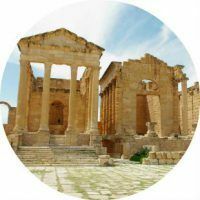
The unique culture of Tunisia is fully reflected in the products of local artisans, which tourists buy as gifts and souvenirs. The counters of markets and shops are full of traditional clothes, shoes and household items with ethnic designs. Especially popular are leather products, handmade jewelry, natural cosmetics and, of course, oriental sweets.
- Alcohol
- Wines
- Vodka fig «Boukha»
- palm liquor «Thibarine»
- Citrus Liqueur «Cedratine»
- Essential Oils
- darbuka
- products blown glass
- Leather
- Shoes
- Bags
- belts
- articles of copper
- Straw products
- Calligraphic paintings
- Hookahs
- Ceramics
- Cages for birds
- Carpets
- Cosmetics
- Clay
- Hair oils
- Olive soap
- Bath salt
- National clothing
- Yonsky tunics
- Shawls, Wraps
- Sheshiya
- Juba
- Serueli
- Olive oil
- Desert Rose
- Sweets
- Makrud
- Honey with nuts
- Baklava
- Dates
- Salted lemons
- Spices
- Harissa
- jewelry and jewelry
- Gold
- Silver
- Hamsa
- Shab
can not be exported
alcohol to contents ^Wines
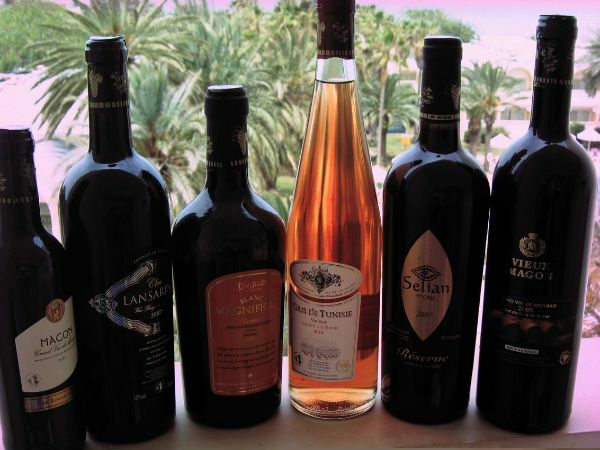
Tunisian wines are located on the territory of Tunisia and the Tunisians adopted technology for making wine from the French. Therefore, local markets primarily sell high-quality vintage wines, such as "Magon", "Muscat de Kelibia" and "Chateau Morgan Rose".
Vodka from figs "Boukha"
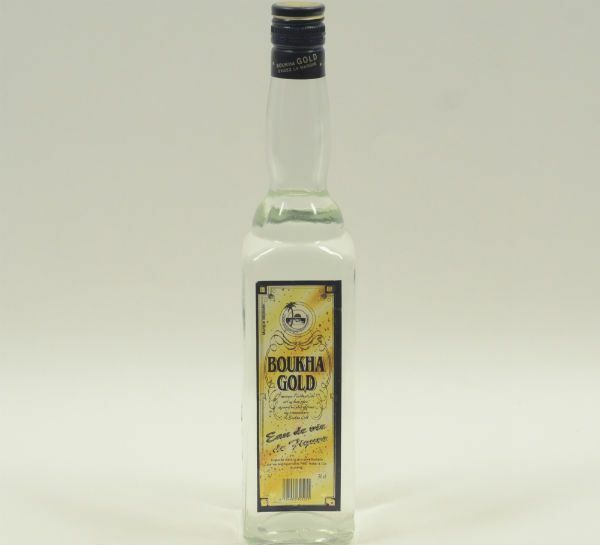
Popular in Tunisia alcoholic beverage is Buha. This is a local brew, made on the basis of figs. It has a citrus aroma and a strength of about 40 degrees. You can buy it in any market.
to contents ^Date liquor "Thibarine"
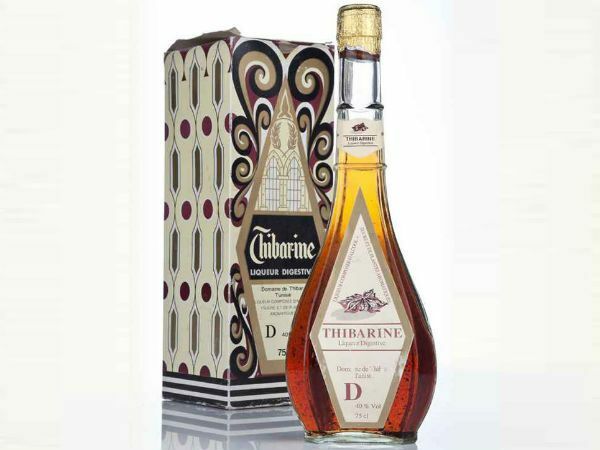
Another alcoholic pride of Tunisia is the liquor "Thibarine".This date liquor has a thick consistency, a strength of 45 degrees and an original taste."Thibarine" is quite an expensive drink, you can try it in hotels with the type of service "All inclusive" or buy in a specialized store "Generals".According to local traditions it is customary to add it to the cola.
to contents ^Citrus liquor "Cedratine"
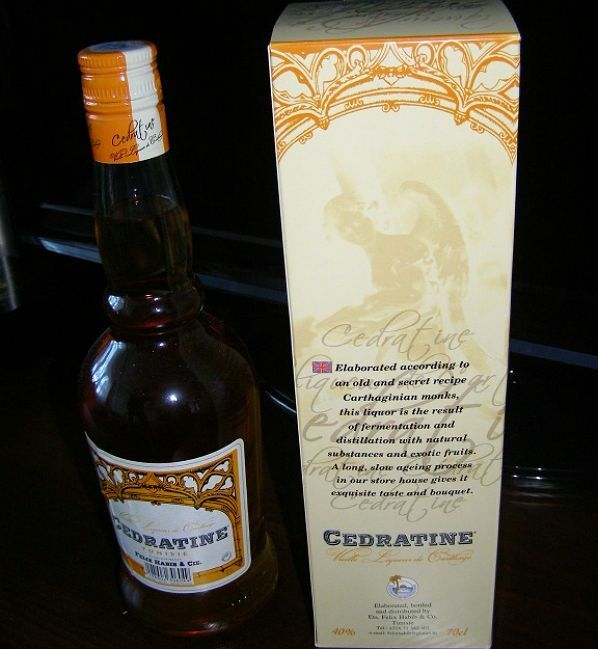
No less popular in Tunisia is the liqueur "Cedratine".Producers say that it is made according to the ancient recipes of the Carthaginian monks by fermenting and distilling the herbs and exotic fruits. This liqueur is considered feminine and it goes well with coffee.
to contents ^Essential oils
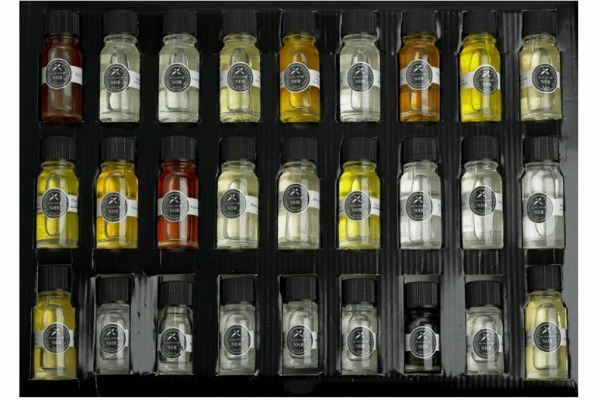
The aromatic oils in Tunisia are sold everywhere. Among the great variety, the most valuable is argan oil. It is very economical to use. For example, for a flavored bath it is enough to add 2 drops of this oil to the water.
Darbuka
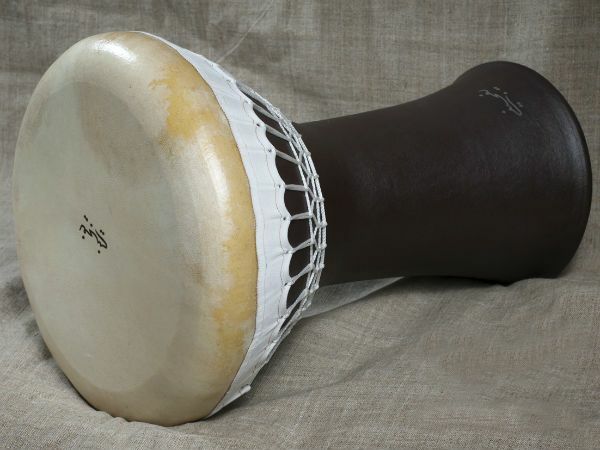
A small gift from Tunisia can be a small drum - a darbuka. This is a national musical instrument, the body of which is made of clay or wood in the form of a cup, and then tightened with a membrane of leather.
Products from blown glass
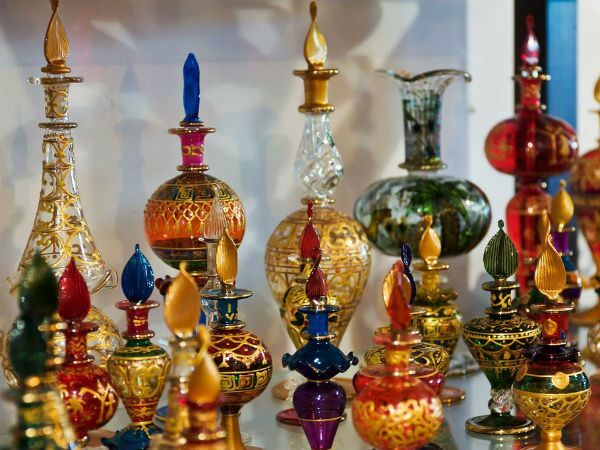
Quality and beautiful glassware is made at Cape Bon and in Carthage. Glass products in the markets of Tunisia are amazing with their diversity. Very interesting is the method of manufacturing "cracked glass" in combination with a copper frame. In the capital of Tunisia, even there is a museum of glass-making skill "Sadika".
to the table of contents ^Leather products
to the table of contents ^Shoes
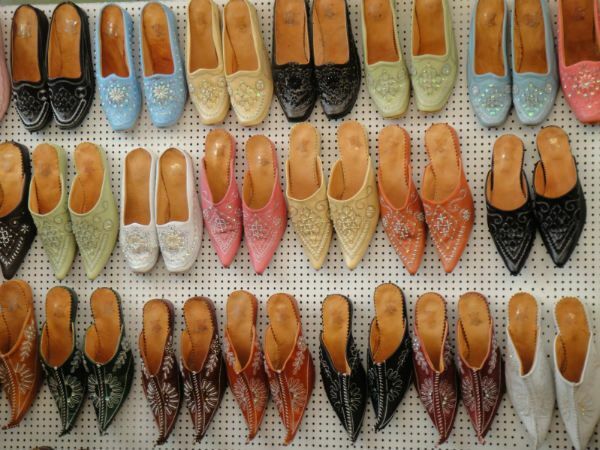
Tunisian leather shoes are beautiful, high-quality and wear-resistant. True, among the many models there are unlikely to be fashionable specimens, most often these are monochrome products with a flat sole, but in different variations of shades. Here you can find traditional flip flops and sandals, shoes with curled socks and even winter boots. In addition, local craftsmen can sew shoes to order.
back to contents ^Bags
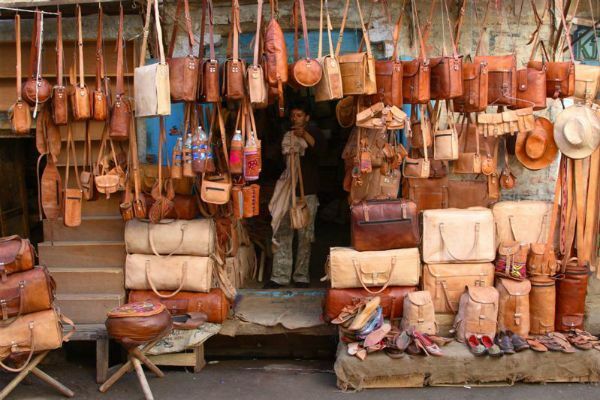
Tunisian craftsmen use a variety of technologies for leather manufacturing. Therefore, low cost is often not very high-quality, but durable and wear-resistant bags of rough leather. More accurate and accurate models are made of soft leather, but there are very few in the market.
to the table of contents ^Belts
From a huge range of leather products in the markets of Tunisia, it is worth highlighting belts from camel skin. Each of them is unique, because because of the lack of automated production, products are created manually. You can buy leather straps almost at any store and at local bazaars.
to the table of contents ^Articles from copper
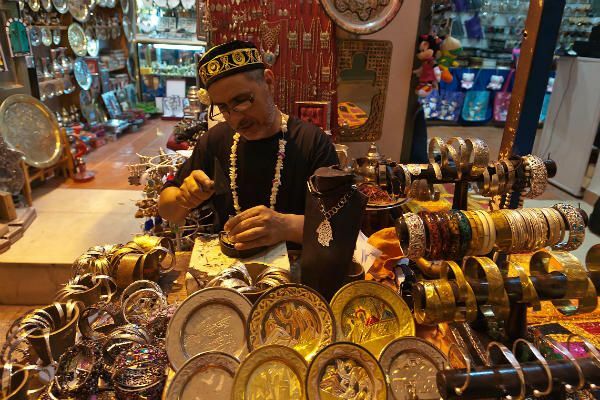
Local craftsmen learned to make of copper cute boxes with silk tassels, Turks and teapots, buckets for saunas, candlesticks and other household items with slotted calligraphic patterns. This is a very popular craft for Tunisia, for which copper alloys are used traditional reddish and pure silver shades. The largest selection of copper things in the markets of Keiruana, and the store "KahenArt" in Carthage.
to the table of contents ^Straw products
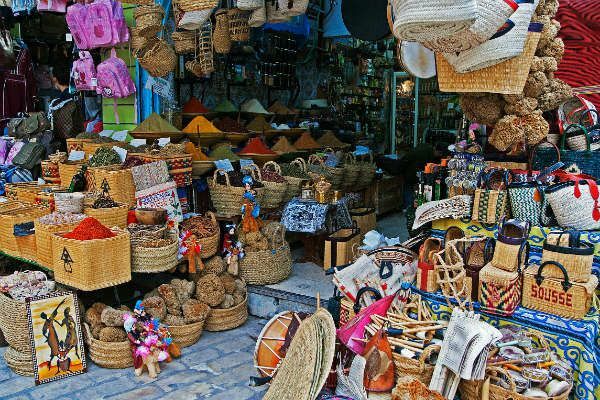
Local straw makes neat and unique gizmos for the house. These are wicker rugs on the floor, chests, caskets, baskets of different shapes and even floor lamps. Produce the product data in mountain oases, respectively, and the choice of these products in these cities is greater. Tourists really like these things, besides, they are usually inexpensive.
to the table of contents ^Calligraphic pictures of
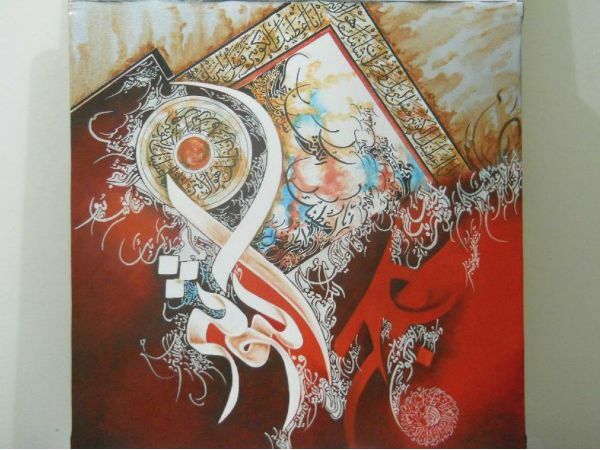
Local calligraphers are real artists who can create full-color colored writing patterns that can form into the outlines of a luxurious palace or a lurking tiger. In such a picture there may be a whole verse or some wise saying. It is of no small importance that the master can execute such a picture under the order, taking into account your personal wishes.
Hookahs
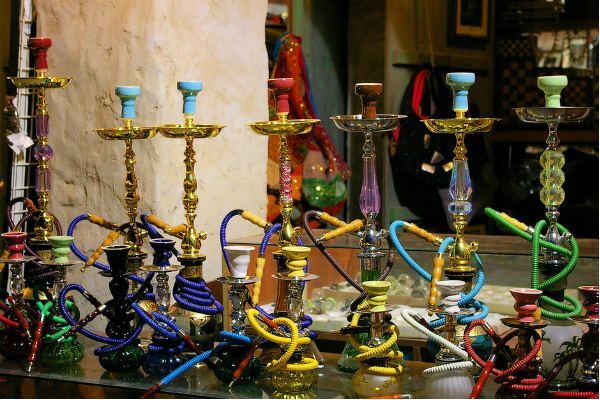
Hookahs are the business card of Tunisia. Here they are distinguished by a bright and sophisticated design. Only large-size hookahs are designed for intended use. Most often when buying a hookah as a gift give an iron cap, which protects the coals from the wind, and forceps. In addition, immediately it is worth buying tobacco and coals.
to the table of contents ^Ceramics
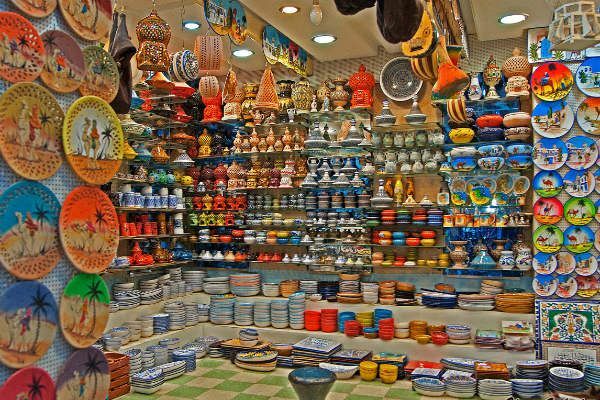
Pottery in Tunisia is most developed in the city of Nabeul and the small village of the island of Djerba - Gellale. From there you can bring a variety of cups, jars, dishes, ashtrays, vases and stuff. The products are decorated with traditional patterns and ornaments. In addition to the beautiful appearance, the dishes are distinguished by their high strength and long service life, thanks to the peculiar technology of firing clay.
to contents ^Cages for birds
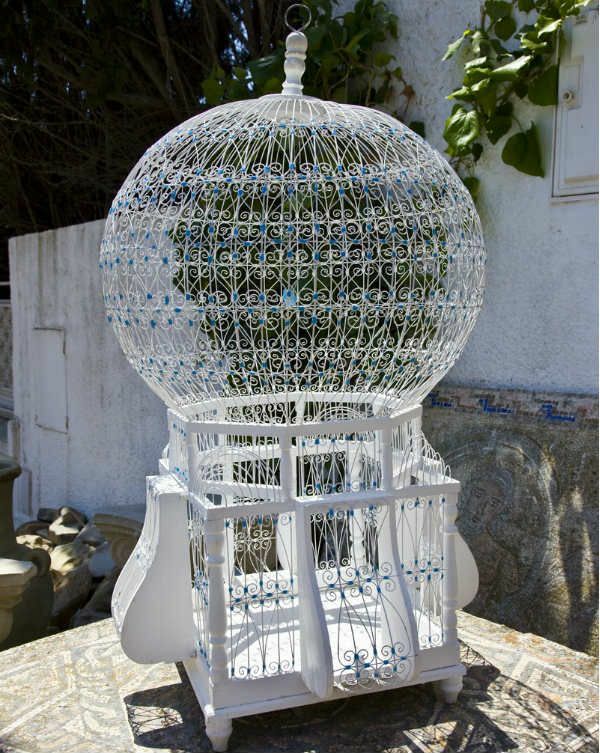
Masters from Sidi Bou Said make cages for birds of incredible beauty. Constructions made of wire decorated with blue beads and original patterns. They are made of various sizes - from tiny to huge in human growth. In terms of their rounded shape, the cells resemble the window lattices of the Sidi-Bu-Said houses and, undoubtedly, will delight the owners of canaries and parrots.
to table of contents ^Carpets
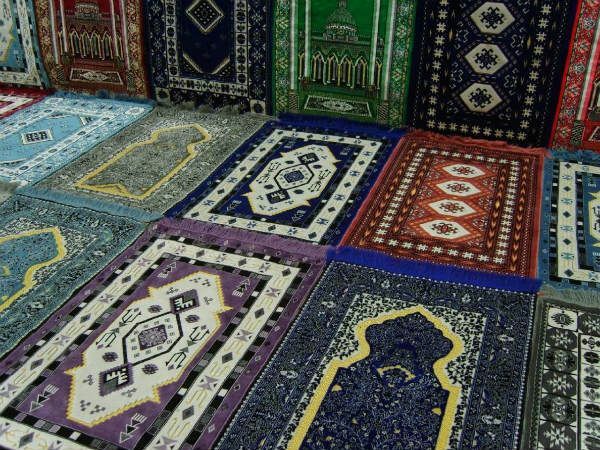
Tunisia is famous for its carpets, which are not inferior in quality to the Persian ones. Do them manually from silk and wool, while using only natural dyes that do not shed and do not burn out. The cost of the carpet depends on the size, quality of the source material and the number of nodes on the color pattern. Buy these products better in the Medina or in Keyuana.
to contents ^Cosmetics
to table of contents ^Clay
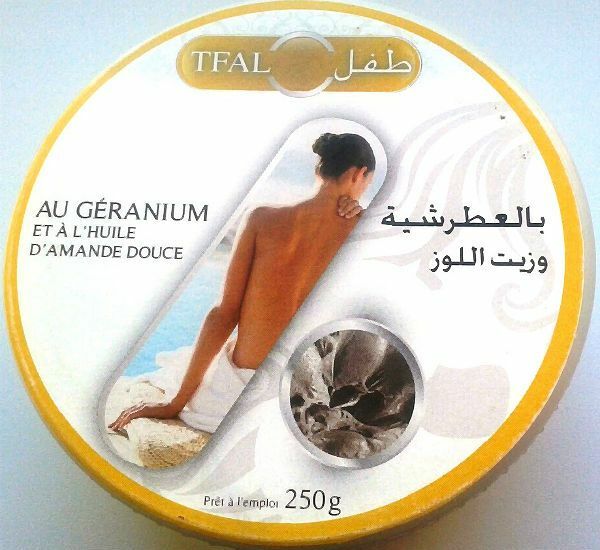
Tfal is a marine clay of volcanic origin, which is extracted from the ocean floor. Like all types of cosmetic clays, taffra has a cleansing property, and its rich composition has a beneficial effect on the skin and hair, therefore, various cosmetic preparations are prepared on its basis.
to the table of contents ^Hair oils
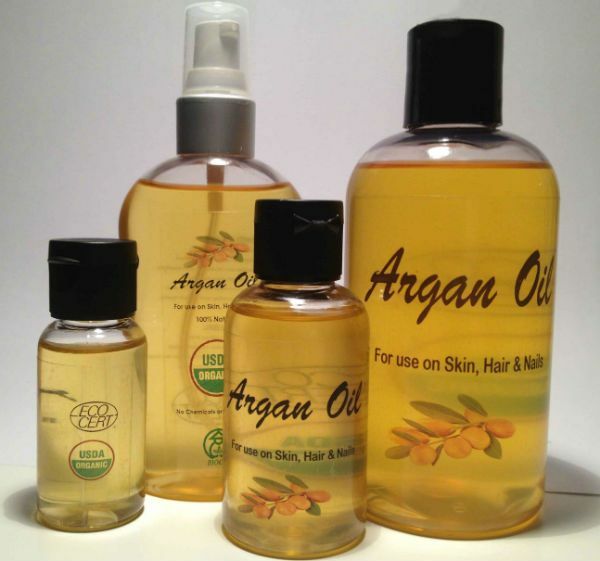
Unique oils that can be brought from Tunisia - argan, cactus of prickly pear, cumin seeds, as well as shea, in pure form, as well as in creams, shampoos, soaps and essences. They differ in useful properties, and local women use them to prolong youthful skin.
to table of contents ^Olive soap
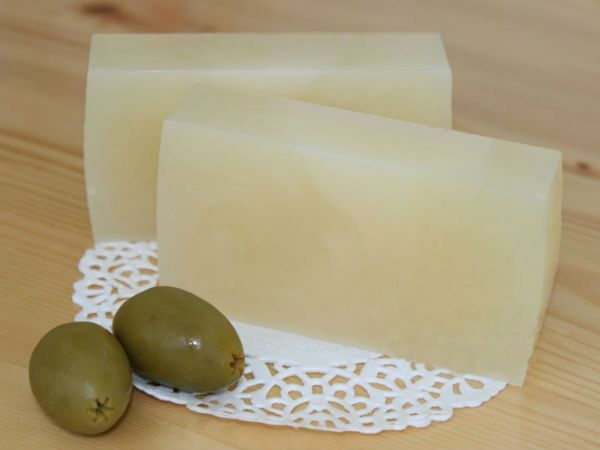
Soap in Tunisia is made on the basis of olive oil. Thanks to this, its regular application makes the skin soft and velvety. The largest selection of soap accessories can be found in Hammamat markets at very affordable prices.
to the table of contents ^Bath salt
Bath salt can be bought in the beauty shops of Tunisia, and you can get it yourself by visiting the salt lake of Chott El Jerid near the town of Duz. It was this earlier common reservoir that, under the influence of high temperature, turned into a territory covered with salt. Local residents use the salt and water of the lake for medicinal purposes.
to the table of contents ^National clothing
to the table of contents ^Women's tunics
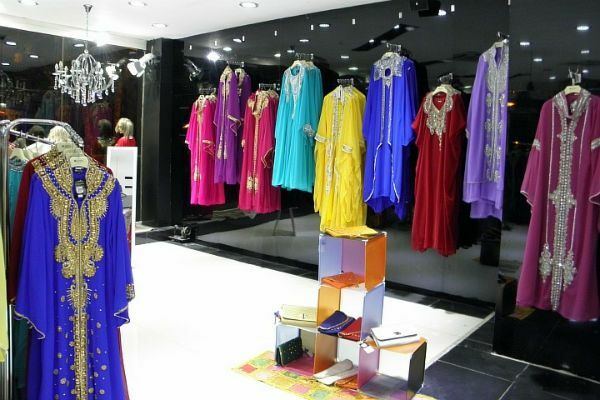
In Tunisia you can buy handmade tunics of linen and natural silk. They can be as long as a dress or short. Linen tunics are decorated with slotted embroidery, and silk tunics are embroidered with gold threads in ethnic style.
to the table of contents ^Shawls, stoles
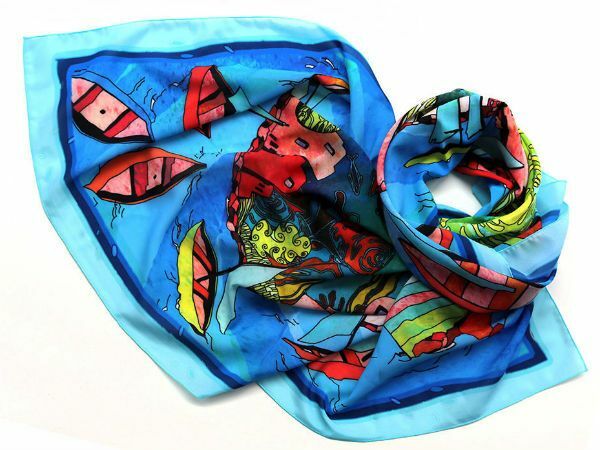
In the city of Mahdia skilled craftsmen from natural silk threads make original and unique stoles, scarves and cloths. Their length sometimes reaches 4 meters, they are worn in the manner of Roman toga. Shawls and stoles with national patterns can be an excellent colorful gift from Tunisia for any woman.
to the table of contents ^Sheshiya
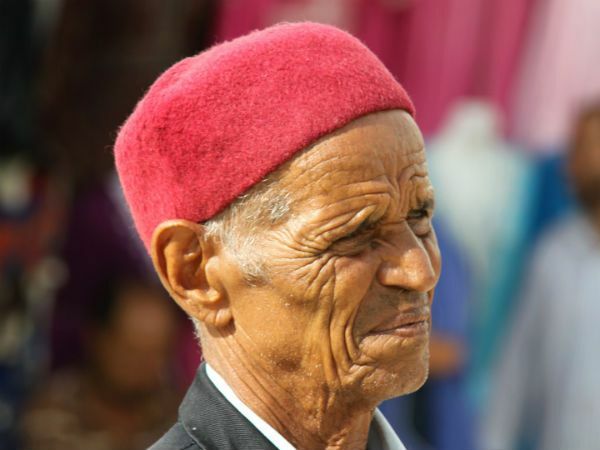
Sheshiya - a business card of Tunisia. This is a red felt hat, which is worn by local men. They make the master's shishas, adhering to a special technology: the wool is soaked for a long time, then they are combed and decorated with a fringe. Then there is a process of felting to give the cap the desired shape. This work is considered prestigious and respected.
to the table of contents ^Jubba
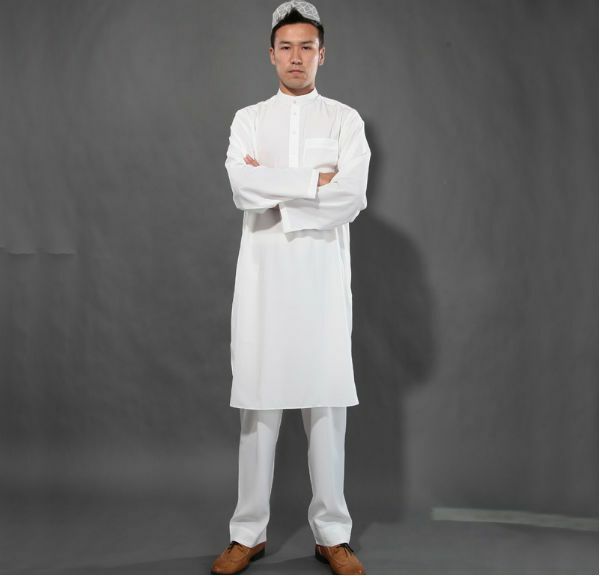
Men will definitely like Tunisian jubby - they are spacious hoodies made of flax and natural silk, the length to the middle of the roe. Similar clothes can be worn in Tunisia, and also bought as a gift.
to the table of contents ^Seruei
CERVELI is a men's linen trousers, traditional for Tunisia, with a large stock of fabric in the groin area, for greater comfort and blowing in a hot African climate.
to the table of contents ^Olive oil
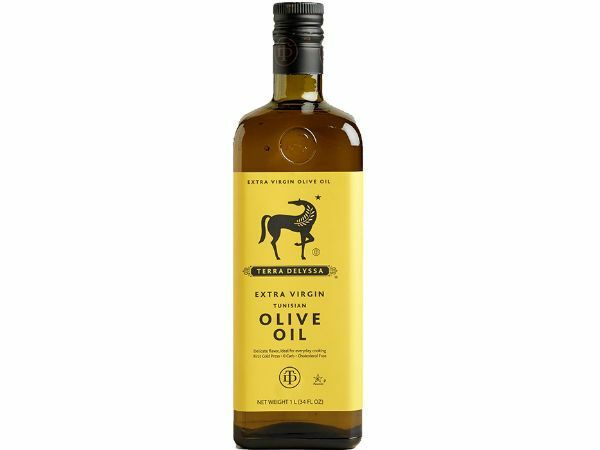
The fruits of the olive tree ripen in late autumn, just then fresh oil appears on the markets. Oil bought in the store must necessarily have labels with the inscriptions "Extra Virgin" or "Cold First Press", and the acidity of the oil indicated on the package should not be less than 1%.The most popular brand of olive oil is Ruspina.
to the table of contents ^Desert Rose
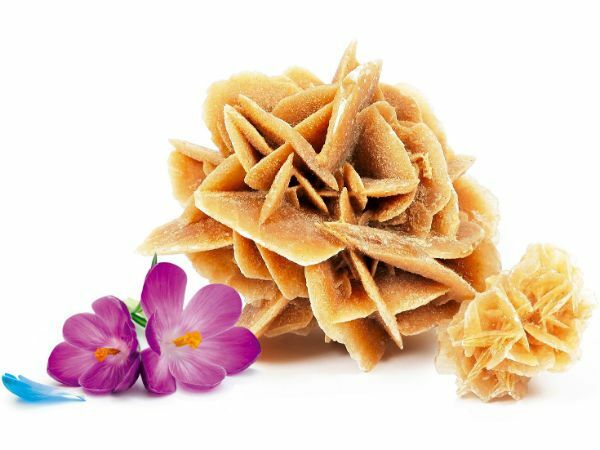
Beautiful and original souvenir from Tunisia - Desert Rose. It is a natural crystalline formation of sand and salt. Its bizarre shape really looks like a flower. Such a gift can be found in any souvenir shop and the price for it, as a rule, is low. Sometimes Rosa Deserts are given on Valentine's Day as a sign of eternal love.
to the table of contents ^Sweets
to the table of contents ^Makrud
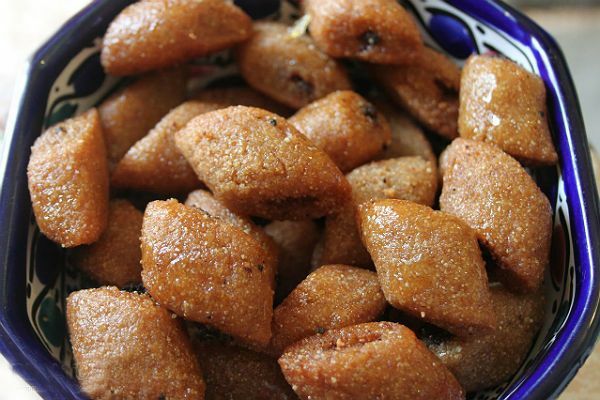
Macrud is a traditional Tunisian cookie, the dough for which is made from manga. The filling can be figs or dates with almonds. Most often, the makroud is baked in the oven or fried in oil in a frying pan, and the cooked pastry is dipped in citrus or honey syrup. Eat a cold chalk.
to contents ^Honey with nuts
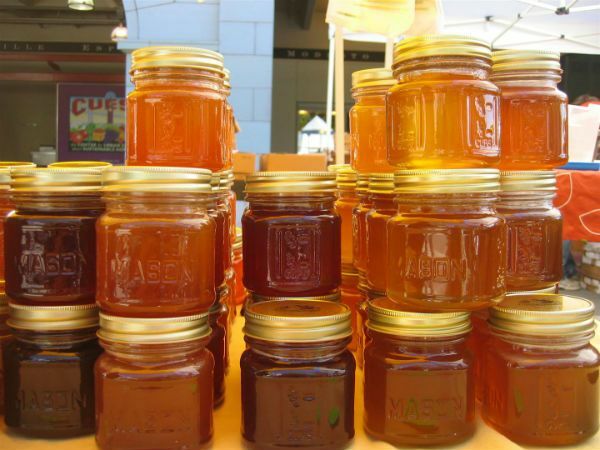
Honey-and-nut combination is a part of almost all traditional sweets of the Arab world, and also exists as an independent dish. In addition, honey and nuts are used to make Tunisian tea.
to the table of contents ^Baklava
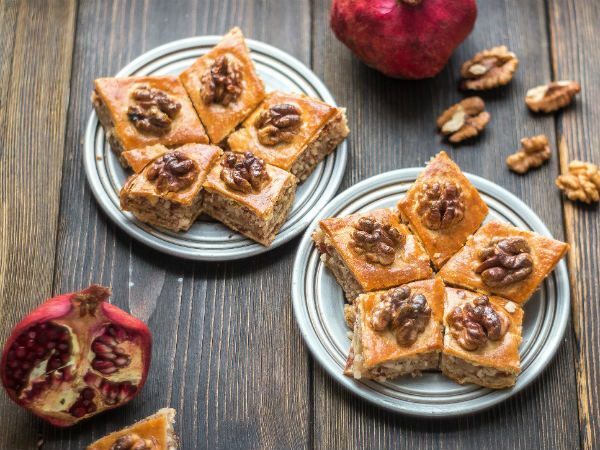
Tunisian baklava is no different from the products from Turkey, which is considered the birthplace of sweets. Sometimes instead of baking traditional colors, local confectioners prepare it in colorful colors. Such baklava can be found in the city of Sidi Bou Said.
to the table of contents ^The dates of
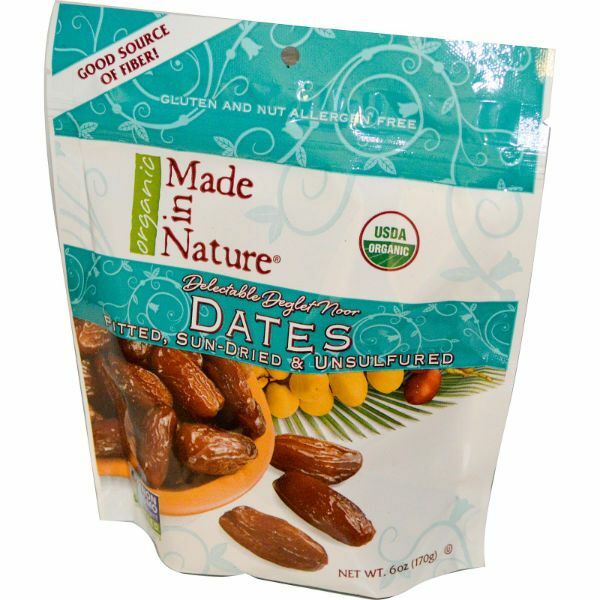
In Tunisia the most delicious sort of dates in the world is grown - Deglet Nur. These dates differ honey-colored skin with a virtually transparent flesh, through which you can consider the bone. In October, fresh fruits are already on sale. They have a long shelf life, so they will be an excellent souvenir.
to the table of contents ^Salted lemons
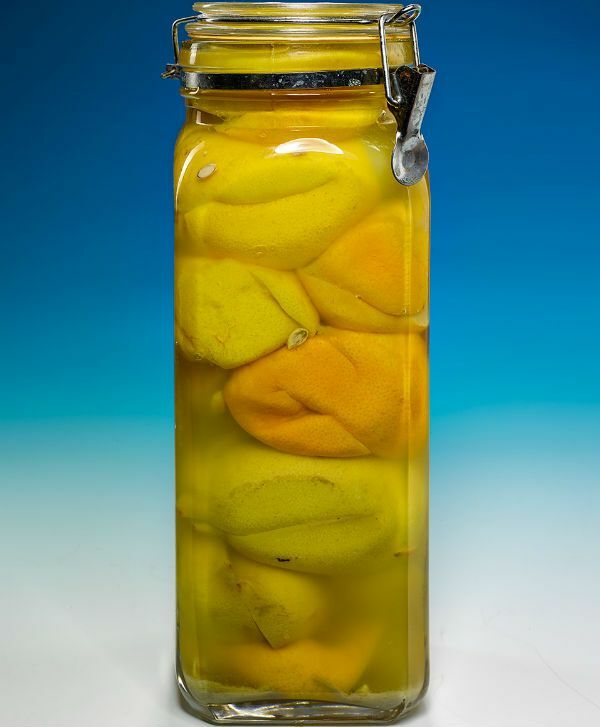
Salted lemons are a unique delicacy, which is definitely worth a try. To buy salted lemons is best on the local Medina from the vendors of pickles. Experts say that they have an unusual taste.
to the table of contents ^Spices
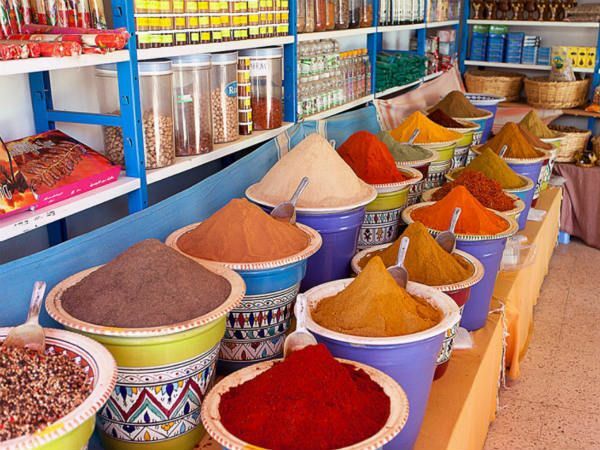
Spices in Tunisia are sharp enough and spicy. They are echoed by exotic oriental cuisine and Mediterranean traditions. A huge popularity here are used such mixtures of spices: bakhrat, horseradish, tabil, offah and harissa. Spices are recommended to be bought by weight and only in places where they can be tried.
to contents ^Harissa
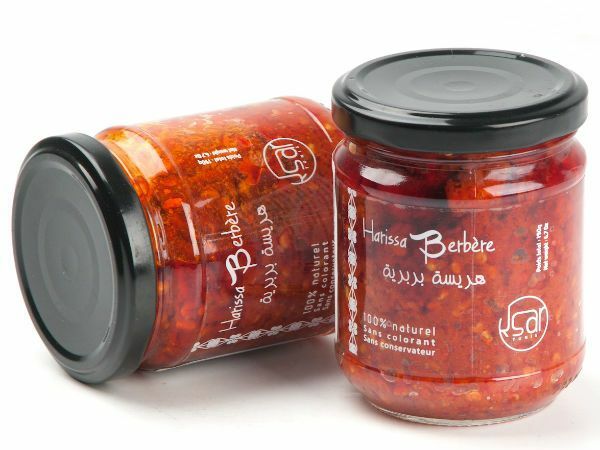
This is a pasty mixture of garlic, olive oil, hot pepper and spices. It can be added to salads or spread on bread. In the markets, this seasoning is packaged in gift boxes and bags, so you can safely buy Tunisian charissu as a souvenir.
to the table of contents ^Jewelry and bijouterie
to the table of contents ^Gold
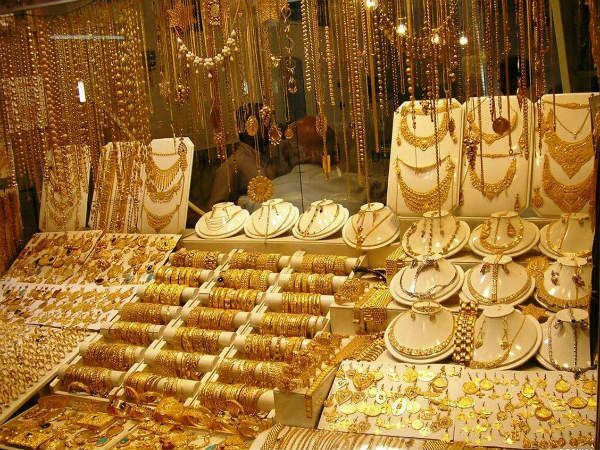
For making jewelry, local masters prefer to use gold of the highest standard - 750, and 585 test is considered a peasant variant. Inlay it, as a rule, semiprecious stones, as Tunisians put on the first place the quality of the metal. At the same time, the stores have white gold jewelry with diamonds.
to contents ^Silver
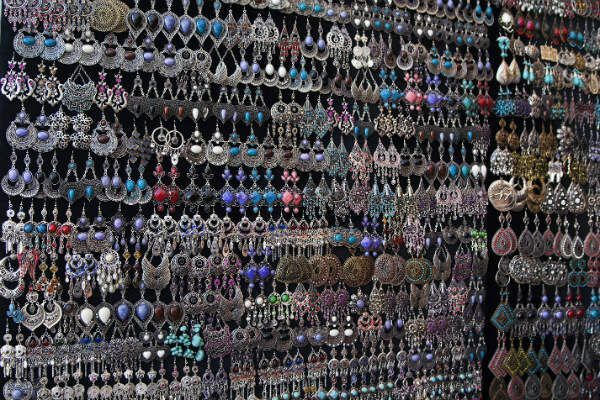
Silver fans will appreciate the massive decorations in the traditional Berber style. Such products are created by real masters of their craft and look very impressive, stylish and unusual.
to the table of contents ^Hamsa
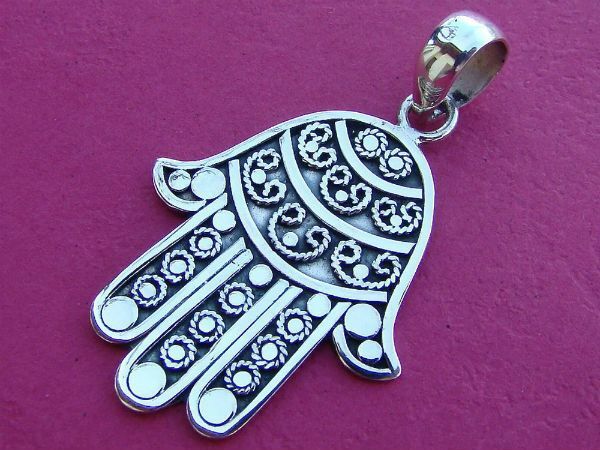
No less popular souvenir is a talisman in the form of a female palm - hamsa. It is also called "The Hand of God" or "Hand of Fatima".Most often, the hamsa is symmetrical, with thumbs on either side. In the center of the anchovy there are symbols of protection from the evil eye and curses. The talisman is found in the form of bracelets and pendants. Such a gift is presented as a wish for success and prosperity.
to the table of contents ^Scab
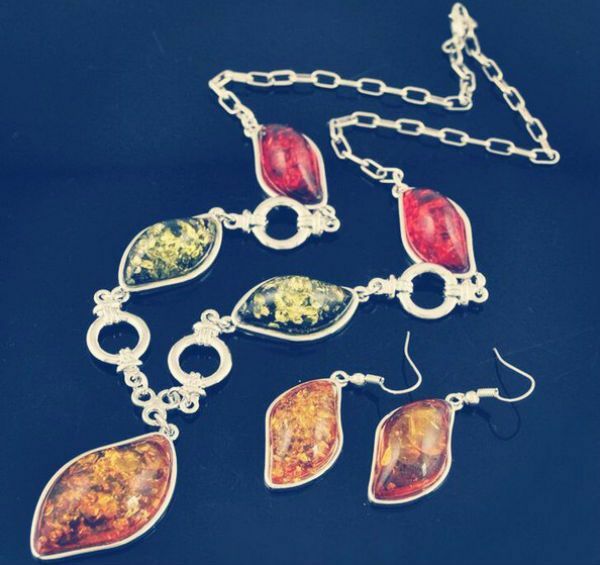
A lot of interest among visitors is caused by inexpensive adornment of scabs. This product with pieces of amber, which from heating on contact with the skin exudes a subtle subtle fragrance.
to contents ^Do not remove
- weapons, drugs;
- national currency;
- historical items.
To avoid problems, you should keep checks for goods purchased in the country.
